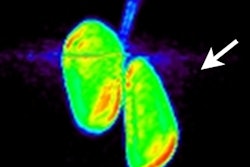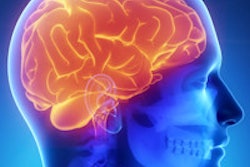Data collected from preclinical PET scans of rhesus macaque monkeys eventually could help physicians examine stress and inflammation in the hearts of people with Parkinson's disease, according to a study published online July 13 in npj Parkinson's Disease.
Approximately 60% of Parkinson's patients have serious damage to connections between the heart and the body's sympathetic nervous system.
"This neural degeneration in the heart means patients' bodies are less prepared to respond to stress and to simple changes like standing up," said study co-author Dr. Marina Emborg, PhD, a professor at the University of Wisconsin-Madison, in a release from the university. "They have increased risk for fatigue, fainting, and falling that can cause injury and complicate other symptoms of the disease."
The researchers administered doses of a neurotoxin to 10 rhesus macaque monkeys; the substance causes damage to the nerves in the heart, simulating the way Parkinson's affects humans. They also performed PET scans on the primates once before neurotoxin administration and twice in the following weeks using three different radioligands to map three different characteristics in the monkeys' left ventricles.
The PET images were detailed enough for the group to observe changes over time in specific areas of the left ventricle.
"We know there is damage in the heart in Parkinson's, but we haven't been able to look at exactly what's causing it," added graduate student and lead author Jeanette Metzger. "Now we can visualize in detail where inflammation and oxidative stress are happening in the heart, and how that relates to how Parkinson's patients lose those neuronal connections in the heart."
The results suggest human patients could benefit from the radioligand scans, with the possibility of someday identifying early nerve damage in the heart before other symptoms of Parkinson's appear, according to the researchers.



















